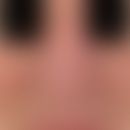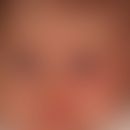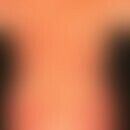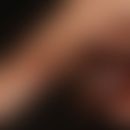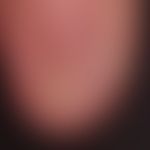Hierfür ist eine Anmeldung erforderlich. Bitte registrieren Sie sich bei uns oder melden Sie sich mit Ihren Zugangsdaten an.
Synonym(s)
acanthoid nail; dorsal pterygium; dorsal pterygium unguis; Pterygium inversum Unguis
HistoryThis section has been translated automatically.
Caputo and Prandi, 1973
DefinitionThis section has been translated automatically.
Scarred end result of an inflammatory process of the nail organ that has led to complete or circumscribed adhesions of nail matrix and proximal nail fold. This leads to a skin bridge (pterygium, wing skin) and to a division of the nail plate into 2 (or more, see figure). The consequences are partial or complete nail loss(anonychia). The pterygium is observed in the following diseases:
- lichen planus
- Systemic Scleroderma
- Systemic lupus erythematosus
- Burns
- Mechanical traumas
- epidermolysis bullosa
- After tumors of the nail matrix
TherapyThis section has been translated automatically.
Plastic surgery correction.
LiteratureThis section has been translated automatically.
- Baek JH et al (2014) A case of acquired idiopathic pterygium inversum unguis. Ann Dermatol 26:374-376
- Caputo R, Prandi G (1973) Pterygium inversum unguis. Arch Dermatol 108: 817-818
- Chiheb S et al (2015) Clinical characteristics of nail lichen planus and follow-up: a descriptive study of 20 patients. Ann Dermatol Venereol 142:21-25
- Erdogan AG et al (2013) Pterygium unguis in leprosy. Int J Dermatol 52:1621-1623
- Perrin C et al(2008) Onychomatricoma with dorsal pterygium: pathogenic mechanisms in 3 cases. J Am Acad Dermatol 59: 990-994
Outgoing links (1)
Anonychia (overview);Disclaimer
Please ask your physician for a reliable diagnosis. This website is only meant as a reference.
